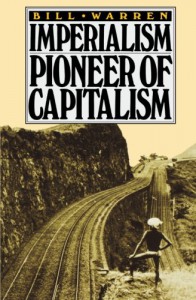
1993 review of “Imperialism, pioneer of Capitalism” – Bill Warren’s book, Imperialism, Pioneer of Capitalism, performs a useful service by refuting much of the mythology that the left has embraced in the name of ‘anti- imperialism’.
REFUTING “ANTI IMPERIALIST’ MYTHS
A Review of Warren’s Imperialism, Pioneer of Capitalism.
This article was originally published in September 1993 in the journal “Red Politics”
by David McMullen
Bill Warren’s book, Imperialism, Pioneer of Capitalism, performs a useful service by refuting much of the mythology that the left has embraced in the name of ‘anti- imperialism’. However, on the other hand, he manages to create his own brand of confusion. He does this, firstly, by blaming Lenin’s Imperialism the Highest Stage of Capitalism for many of the left’s erroneous views.
And secondly, he is so busy extolling the historical mission of capitalism, that no effort is devoted to discussing how capitalism is an obstacle to human development and is becoming increasingly obsolete. Nevertheless, despite these shortcomings it is the myth shattering quality of the book that predominates.
Warren begins by reminding us of the basics of a Marxist attitude to capitalism:
(a) It is an advance in all respects on earlier forms of society.
(b) It develops the productive forces and society generally, so creating the necessary material or objective conditions for future communist society. This development also generates the contradictions which lead to capitalism’s revolutionary overthrow.
The following passage from the Communist Manifesto that Warren quotes (Warren 1980, p 11) says it all.
The bourgeoisie cannot exist without constantly revolutionizing the instruments of production, and thereby the relations of production, and with them the whole relations of society. Conservation of the old modes of production in unaltered form, was, on the contrary, the first condition of existence for all earlier industrial classes. Constant revolutionizing of production, uninterrupted disturbance of all social conditions, everlasting uncertainty and agitation distinguish the bourgeois epoch from all earlier ones. All fixed, fact-frozen relations, with their train of ancient and venerable prejudices and opinions, are swept away, all new-formed ones becomes antiquated before they can ossify. All that is solid melts into air, all that is holy is profaned, and man is at last compelled to face with sober senses his real condition of life, and his relations with his kind. (Marx and Engels, 1968, pp 34-5.)
This approach to capitalism is at total variance to that prevailing in the “left’, The usual practice is to bemoan the development of capitalist productive relations and productive forces, and to cherish the things that capitalism is destroying. A few examples might clarify this point.
(1) Increased economic concentration and the destruction of the petty bourgeoisie. A classic case of the left’s response is its bemoaning such things as agribusiness, supermarkets and fast food chains.
(2) The increasing internationalisation of capital and the division of labor, which increases human intercourse on a world scale and lays the basis for a global society. This is denounced for destroying our independence and national heritage and placing us at the mercy of the multinationals.
(3) The destruction of cherished skills by new technologies (cherished, that is, by trendy left sociologists). To a Marxist, technological development is eliminating the technical division of labor which is the material basis of class society. In other words we are moving to a situation where you will have an educated and versatile workforce, on the one hand, and on the other hand, processes of production in which all types of activities can be performed equally by all members of the workforce.
(4) The erosion of traditional culture and social bonds. Traditional life tends to be romanticized, compared with soulless modern living We have lost something. On the other hand, to a Marxist the neuroses and instability of modern life are infinitely superior to the narrow mindless certainty and security of days gone by.
So given that capitalism is a social advance and creates the conditions for social revolution, how are we to view European colonial expansion into pre-capitalist societies?
Warren cites, by way of example, Marx’s recognition of the historically progressive role of Britain’s penetration of India.
“England, it is true, in causing a social revolution in Hindoostan, was actuated by the vilest interests, and was stupid in her manner of enforcing them. But that is not the question. The question is, can mankind fulfill its destiny without a fundamental revolution in the social state of Asia? If not, whatever may have been the crimes of England, she was the unconscious tool of history in bringing about the revolution.” (S. Avineri (ed.) pp 93-94.)
Not long afterwards, Marx wrote as follows:
“England has to fulfill a double mission in India: one destructive, the other regenerating – the annihilation of old Asiatic society, and the laying of the material foundations of Western society in Asia.” (S. Avineri (ed.) pp 132.)
On the destruction side, they broke up or seriously undermined much of the existing social fabric and pre-capitalist modes of production. On the construction side, political unity was greatly enhanced by the British sword (mainly in the hands of local recruits), telegraph and railways, and embryonic industrialization began to emerge.
It is appropriate that the anti-colonial struggles of the twentieth century have not simply been directed at expelling the foreign oppressor. Rarely was the struggle simply one of returning to the days before colonial rule. For example, the struggle for independence in India was not directed at restoring the Mogul empire and independence in Africa did not mean returning to tribal hunter gathering or slash and burn societies.
In some cases such as in China, the revolution was directed at the total destruction of the traditional conditions that predated colonialism such as the remnants of feudalism. Even where independence from colonialism was not accompanied by fundamental social revolutions, the essential aspect of decolonisation was the establishment of a modern state, and the first steps towards a modern economy.
In the case of Czarist Russia, the modern industrial sector, which spawned the proletariat in the two decades prior to 1914, was primarily the product of foreign investment. At no stage did the Bolsheviks target this foreign ownership as something to be abhorred, an interesting point in the light of the economic nationalist position adopted by most of the Australian left.
To quote Warren:
“Between 1896 and 1900 a quarter of all new companies formed were foreign, and by 1900 foreign capital accounted for 28% of the total. By 1914 the proportion had risen to 33%. Foreign capital controlled 45% of Russia’s oil output, 54% of her iron output, 50% of her chemical industry, 74% of her coal output. More than half of the capital of the six leading banks of the country – themselves controlling nearly 60% of all banding capital and nearly half of all bank deposits – was foreign.” (Warren 1980, p 46.)
The position commonly adopted by the left is to deny that capitalism is fulfilling its historical function in the developing countries. We are told that capitalism is not developing the productive forces nor is it destroying pre-capitalist conditions. The LDCs are supposedly being underdeveloped by the world capitalist system. A major part of Imperialism, Pioneer of Capitalism is devoted to refuting these views. The linchpin of these views is the modern theory of imperialism, dependency and underdevelopment. Typical of the theorists in this area are Paul Baran, Andre Gunder Frank and Samir Amin.
We are told that the people of the Third World have been getting progressively worse off during the modern era (ie since the industrial revolution) and have generally experienced a socio-economic and cultural regression. Capitalism has developed, and continues to do so, in a contradictory fashion, which generates at the same time development in the centre and underdevelopment in the periphery.
The implication is that it is fruitless to expect underdeveloped countries to repeat the stages of economic growth passed through by modern developed capitalist economies whose classical capitalist development arose out of pre-capitalist and feudal society. Hence, the historical role of capitalism in these countries is finished, or at a dead end. It is argued, moreover, that the achievement of political independence has not significantly improved prospects of development in the periphery.
A number of arguments are put forward to support the above position. Warren picks out three as being particularly important.
(a) A drain of economic surplus from periphery to centre is said to arise from the flow of profits from foreign investment in the periphery back to the metropolitan country, and from unequal exchange in trade.
Warren points out “that for such a drain to retard economic development it must be an absolute drain not simply an unequal transaction that nevertheless leaves both sides better off than before …”. For example, the comparison that people make between profit outflow and capital inflow tends to be very misleading. Surplus extraction under capitalism is not comparable to the plunder practiced by the empires of antiquity.
Foreign investment creates the surplus (with the help of local labor of course) before it extracts it; and it does this by developing the productive forces. You can certainly criticise the form taken by foreign investment and trade, and argue that Third World countries would gain if they were better organised. What you cannot argue is that the wealth of Third World countries is being depleted.
Closely related to this surplus gain concept is the idea that developed countries are better off than others because they have more than their share of the world’s resources. In other words the reason why we have better plumbing than people in Bangladesh is because we have more than our share of the world’s supply of pipes and trained plumbers.
Or to put it more generally, there is a fixed quantity of some substance called prosperity and the more that goes to one lot of people the less there is for everybody else. This is a total failure to understand economic development as a process of economic accumulation. Its most negative effect is the implication that the interests of people in the developed and underdeveloped world are at loggerheads.
(b) The ‘traditional’ division of labour between centre and periphery countries whereby the former produce manufactured goods and the latter primary goods, is seen to be imposed by the centre on the periphery and is a source of its backwardness.
Warren argues that the validity of the argument rests on two assumptions, which he sets out to refute. These are first that there was a possible and desirable alternative line of development to primary-product, export-lead growth in the backward countries concerned; and second, that the initial emphasis on the export of primary products actually erected serious impediments to subsequent diversification, especially along the lines of industrialisation.
(c) Imperialism or centre/periphery relations are said to encourage the preservation of pre-capitalist modes of production. This is discussed at two levels. First, there is the case where capitalist production at one point encourages pre-capitalist production at another point (eg, cotton production based on slavery). Here Warren correctly argues that the destructive force of capitalist relations would far outweigh any conserving tendencies.
Second, there is the claim that imperialism has tended to ally itself with local feudalism at the expense of progressive bourgeois forces. Warren replies that this is largely undercut by the almost universal willingness of feudal classes to transform themselves, at least partly, into capitalist industrialisers once conditions are ripe. Where
Warren falls short on this question in failing to emphasise that a thoroughly bourgeois revolution would far more successfully unleash capitalist development.
At a more general and theoretical level Warren attacks dependency theory on a number of grounds.
To begin with it is a static view. While a change in form over time tends to be conceded, the possibility of declining dependency is precluded. Moreover, changes in the centres of power is inadequately allowed for.
The theory is ahistorical in that it assumes the following:
(a) that there were latent suppressed historical alternatives to the development that actually took place; (b) that the failure of alternatives to materialise was primarily the result of external imposition (colonial policy).
The theory is metaphysical in that it basically explains social phenomenon in terms of external causes, rather than as an interaction of both internal and external factors. (Mao spoke of external factors as the conditions of change and internal factors as the basis of change.) Dependency theorists would, for example, explain a country’s backwardness by the fact that foreign capital is only invested in enclaves or cash crops.
A more sensible approach would perhaps be to see cause and effect running the other way – because the country is backward these industries are the only opportunities for investment. The backwardness would then be explained essentially by internal factors, namely a social system and mode of production significantly inferior to, or historically less advanced than, capitalism in developed countries.
Dependency theory has a strong thread of nationalist utopia, which establishes a set of thoroughly dubious criteria of what is good and what is detrimental. The first blossoms of bourgeois society are denounced simply as imperialist cultural penetration (coca cola culture) serving the interests of the mutinationals and reinforcing dependent status.
There is also the concept of articulated economy. Every country has to have its own steel industry, for example. It is argued that if you do not have the full range of industries you are trapped into some narrow and enslaving international division of labour.
This last point touches on a major area of confusion, namely, the distinction between dependence and interdependence. Warren says:
“Since national economies are becoming increasingly interdependent, the meaning of dependence is even more elusive, not to say mystical.”(Warren, 1980, p 182)
In fact with the increasing importance of international trade and capital movement, it is often the case that dependence on trade and foreign investment is a sign of economic development.
The last section of Warren’s book provides extensive evidence that considerable economic development has occurred in the Third Word during the post-war period. It has been meteoric in comparison with that in western countries. The western countries took centuries to emerge from the Middle Ages and eventually achieve an industrial takeoff in the nineteenth century.
On Lenin’s views of imperialism
In Warren’s opinion, the more recent theories of imperialism, such as underdevelopment and dependency are best regarded as post-war versions of the views expressed by Lenin in Imperialism, the Highest Stage of Capitalism, or at any rate stemming, or continuing, from where he left off. Warren also claimed that in this book Lenin was espousing views that were at variance with his earlier writings on the Narodniks and the role of capitalist development in Russia.
Here Warren is skating on thin ice. Much of his case rests on Lenin’s use of particular words, especially ‘moribund’, ‘stagnant’ and ‘parasitic’. By ‘moribund’, Lenin is referring to the increasing obsolescence of capitalism, exemplified most starkly by two world wars and economic crises of the sort that hit in the 1930s and will hit again in the future. He is not saying that social and economic development ceases.
In his use of the word, ‘stagnation’, Lenin is not saying that capitalism is no longer revolutionising the productive forces – a proposition that would obviously be wrong. He is referring to its increasing tardiness relative to a communist organisation of production – the productive forces are outgrowing the capitalist mode of production.
Warren tries to equate Lenin’s description of monopoly capital and imperialist countries as parasitic with the crude “surplus drain’ view . However, Lenin is not denying that the export of capital develops the productive forces in recipient countries; he is just saying that the centralisation in the ownership of capital shows up geographically.
Places such as London and New York have a far higher than average proportion of the world’s bloodsuckers; they tend to be richer and their ‘portfolios’ span the world. When Lenin explicitly discussed the impact of imperialism on the then colonies, he said that it was developing the productive forces. Warren unjustifiably shrugs this off as lip service to Marxist orthodoxy.
Warren had a number of other criticisms of Lenin’s position. However, they are not central to our present discussion. He claims (a) that capital exports have not increased in signifcance, (b) that Lenin espoused underconsumptionism and (c) that inter-imperialist rivalry was based on trade rather than competing capital. These and other issues could perhaps be looked at on some other occasion in a fuller discussion of Lenin’s book.
Bibliography
Amin, S., Accumulation on a World Scale, New York, Monthly Review Press, 1974.
Avineri, S., ed., Karl Marx on Colonialism and Modernisation, New York, Anchor Books, 1969. Frank, A. G., Capitalism and Underdevelopment in LatinAmerica, Harmondsworth, Penguin Books, 1971.
Greene, F., The Enemy, Notes on Imperialism and Revolution, London, Jonathon Cape, 1970. One of the more readable and also more appalling renderings of the ‘anti-imperialist’ position.
Lenin, VI, ‘On the So-Called Market Question’ Collected Works, Vol. 1, Moscow, 1963.
———– ‘The economic content of Narodism and the criticism of it in Mr Struve’s book’, Collected Works, Vol. 7, Moscow, 1963.
———–, Imperialism: the Highest Stage of Capitalism, Peking, Foreign Language Press.
Marx, K., Pre-Capitalist Economic Formations, London, Lawrence and Wishart, 1964.
———– and Engels, F., Manifesto of the Communist Party, Peking, Foreign Language Press, 1968.
Warren, W., Imperialism and capitalist industrialisation, in New Left Review (1973).
———–, Imperialism and Neo-Colonialism, British and Irish Communist Organisation (March 1977).
———–, Nations and corporations, in Times Literary Supplement, 1 November 1977..
———–, Poverty and prosperity in Times Literary Supplement, 12 December 1975.
———–, Imperialism, Pioneer of Capitalism, Verso, 1980, 274 p.
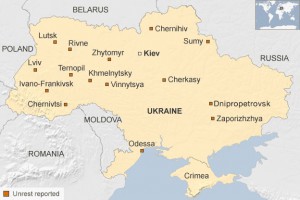
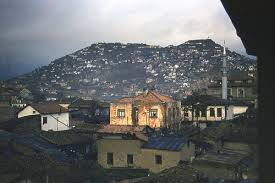
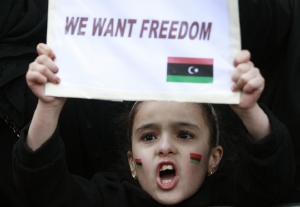

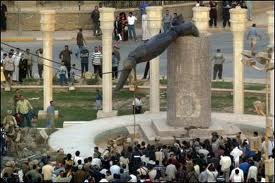
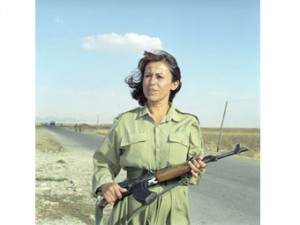

![global_economic_crisis_thumb[4]](http://strangetimes.lastsuperpower.net/wp-content/uploads/2011/01/global_economic_crisis_thumb4-300x300.jpg)
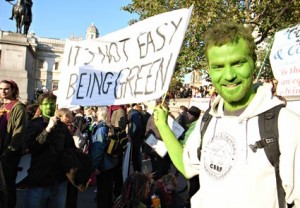


Recent Comments